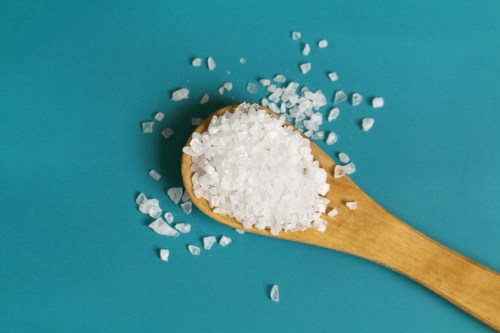Swapping out table salt for sea salt?
Heed experts' warnings about missing out on this key nutrient.
The FDA Just Banned Red Dye No.

3: The Future of Processed Foods
Is Red Wine Any Healthier for You Than White Wine?
Proffee Is the Hottest New Beverage Trendbut Should You Really Be Adding Protein to Your Coffee?
Theres a surprising amount of options when it comes to buying salt.

…
Theres table salt, Kosher salt, sea salt, and Himalayan saltjust to name a few.
But while all these salts contain sodium, only onetable salthas been fortified withiodine, an essential nutrient.
The practice of iodizing salt began in the 1920s as a way to address widespread iodine deficiencies in Switzerland.

Just a few years later, iodized salt was introduced in America.
So, should we be chucking our fancy sea salt in favor of iodized table salt?
What is iodine and why do we need it?

The thyroid helps regulate various bodily functions, such as metabolism, heart rate, and the nervous system.
Besides salt, what foods contain iodine?
Lots of foods naturally contain iodine.

…
TheNational Institutes of Health(NIH) namesseaweed as one of the best natural sources of iodine.
Other iodine-rich foods include seafood and eggs.
Additionally, certain foods actually interfere with the bodys ability to use iodine; these foods are calledgoitrogens.

Some examples include soy, cruciferous vegetables, lima beans, and sweet potatoes.
What are the symptoms of an iodine deficiency?
The first symptom of an iodine deficiency is typically an enlarged thyroida condition referred to as a goiter.

Should you take an iodine supplement?
That said, she also emphasized that an iodine supplement may not be for everyone.
Talk with your doctor and/or registered dietitian before making changes to your diet and/or supplement regimen, she cautions.
“Iodine supplements can interact with some medications and might not be appropriate for some people.
There is also such a thing as too much iodine.
So, are iodine deficiencies actually on the rise?
Based on the most recent data from 2011 to 2014, iodine levels are generally sufficient.
However, recently, doctors have been noticing anupswing in iodine deficiencies and hypothyroidism in childrenworldwide.
Two likely contributing factors are decreased use of iodized salt and the rising popularity of plant-based diets.
In fact, the WHO has put out acall-to-action to fortify plant-based dairy alternatives, specifically in European regions.
Do you better swap your sea salt for table salt again?
In short, it depends on the individual, explains Truscott.
…
Got it, you’ve been added to our email list.